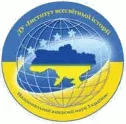Место политики в сунне пророка Мухаммада: история вопроса от аль-Карафи до идеологов исламской революции в Иране
##plugins.themes.bootstrap3.article.main##
Анотація
У статті аналізується одне з важливих питань ісламської політичної думки – походження військово-політичних дій пророка Мухаммада. Це питання протягом багатьох століть є предметом серйозних дискусій та розбіжностей серед мусульманських мислителів. Автор зіставляє дві протилежні з цього питання погляди мусульманських вчених різних епох.
Згідно з першою – політичні рішення пророка Мухаммада необхідно сприймати як плід одкровення, згідно з другою – вони все ж таки є результатом яскравого політичного таланту. Автор визначившись із доводами кожної із сторін і як арбітр, звертається до священного Корану. Різні приклади зі священного писання мусульман дозволяють дійти такого висновку, що політичні та військові рішення, прийняті як наслідок одкровення, займають значне місце в сунні пророка Мухаммада. Проте, автором наводяться приклад випадки, коли пророк Мухаммад приймав важливі військово-політичні рішення на власний розсуд або за результатами наради зі своїми сподвижниками.
Узагальнивши приклади з урахуванням уроків ісламської історії та сучасних політичних процесів, автор приходить до висновку, що основоположні принципи ісламського правління, встановлені пророком Мухаммадом, мають коранічне походження, і вони мають для мусульманських лідерів обов’язковий характер. Керуючись цими принципами, мусульманські лідери вільні приймати рішення в тій чи іншій формі залежно від обставин, що склалися. У Корані та сунні пророка Мухаммада відображено принципи та сутність ісламської політики. Зовнішні форми розглядаються у якості мінливого явища й у традиційному ісламському дискурсі інтерес до їх осмислення, зазвичай, не такий великий.
Завантаження
##plugins.themes.bootstrap3.article.details##
Посилання
The Quran. (2019). Moskva: Ripol Klassik, 2019 [In Russian].
Al-Ghazali (2014). Tematicheskie kommentarii k Koranu (V 3 chastyakh). Chast’ tret’ya [Thematic commentaries on the Qur'an. (In 3 parts). Part three.]. Baku: CBS. [In Russian].
İbn Hisam (2007). Jizneopisaniye Proroka Muhammada [Biography of the Prophet Muhammad]. Moskva: Umma. [In Russian].
Khomeyni, R.M. (1999). Religioznoe i politicheskoe zaveshanie [Religious and political testament]. Put k svobode. Rechi i zaveshanie [Path to freedom. Speeches and testaments]. Moskva: Paleya. [In Russian].
Prozorov, S.M. (1991). (eds). İslam: Ensyklopedicheskiy slovar [Islam: Encyclopedic Dictionary]. Moskva: İzd-vo Vostocnoy literaturi. [In Russian].
Ayatullah Seyid Ali Khamanei (2016). 250 yaslı insan. 14 masumun siyasi hayat ve mubarizesine dair chixislardan shecmeler. Tarcuma T.Abbasov. Baki, Nurlar. [In Azeri].
İbn Saad (2014). Kitabul – Tabakatul Khabir. II cilt. (Rasulullahın Gazve ve Seriyyeleri). Cheviri: M.Polat. İstanbul: Siyar Yayınları. [In Turkish].
Abd-al Hamid Abu Suleyman (2011). Krizhis musulmanskoqo razuma [The crisis of the Muslim mind]. Baku: CBS. [In Russian].
Amirov, E.G. Razmishleniya o politiceskov nasledii proroka Muhammada: fakti protiv domislov i stereotipov [Reflections on the Political Legacy of the Prophet Muhammad: Facts Against Stereotypes and Conjectures]. [Online.]. Available from: https://1news.az/news/ 20171229030858380-Razmyshleniya-o-politicheskom-nasledii-proroka-Mukhammada-s-a-s-Fakty-protiv-stereotipov-i-domyslov [In Russian].
Djasser, A. (2015). Tseli shariata (Makasid –as-Sharia) [Objectives of Sharia (Makasid Ash-Sharia)]. Moskva: İzd. dom Marjani. [In Russian].
İgnatenko, A.A. (1989). Khalifı bez khalifata. İslamskie Nepravitelstvennie religiozno-politiceskie organizacii na Blishnem Vostoke: istoriya, idelogiya, deyatelnost [Caliphs without a Caliphate. Islamic non-governmental religious and political organizations in the Middle East: history, ideology, activities]. Moskva: İzd-vo Nauka. [In Russian].
Kepel, J. (2004). Cihad. Ekspansiya i zakat islamizma [Jihad. Expansion and decline of Islamism]. Moskva: Ladomir. [In Russian].
Murtazin, M.F. (2009). Sootnoshenie religii i politiki v ucenii İslama i praktike musulmanskix stran na primere İslamskoy Respubliki İran [The relationship between religion and politics in the teachings of Islam and the practice of Muslim countries on the example of the Islamic Republic of Iran]. Tridtsat let Islamskoy revolyucii v İrane (Sbornik statey rossiyskikh i iranskikh uchenykh) [Thirty years of the Islamic revolution in Iran (Collection of articles by Russian and Iranian scientists)]. Moskva: Drofa. [In Russian].
Muhammad Sadik Muhammad Yusuf. (2008). Prava cheloveka v İslame [Human rights in Islam]. Sankt-Peterburg: Dilya. [In Russian].
Shauki Abu Khalil. (2010). Atlas Korana [Atlas of the Quran]. Sankt-Peterburg: Dilya. [In Russian].
Amara Muhammed (2011). İslam metodologiyasının hususiyyetleri. Bakı: CBS. [In Azeri].
Ahmad Muhammad Sharif (2011). İslama yeni bakhis. Bakı: CBS. [In Azeri].
Hamidullah, M. (2002). Peygamberin shavaslari. İstanbul: Beyan Yayınları. [In Turkish].

